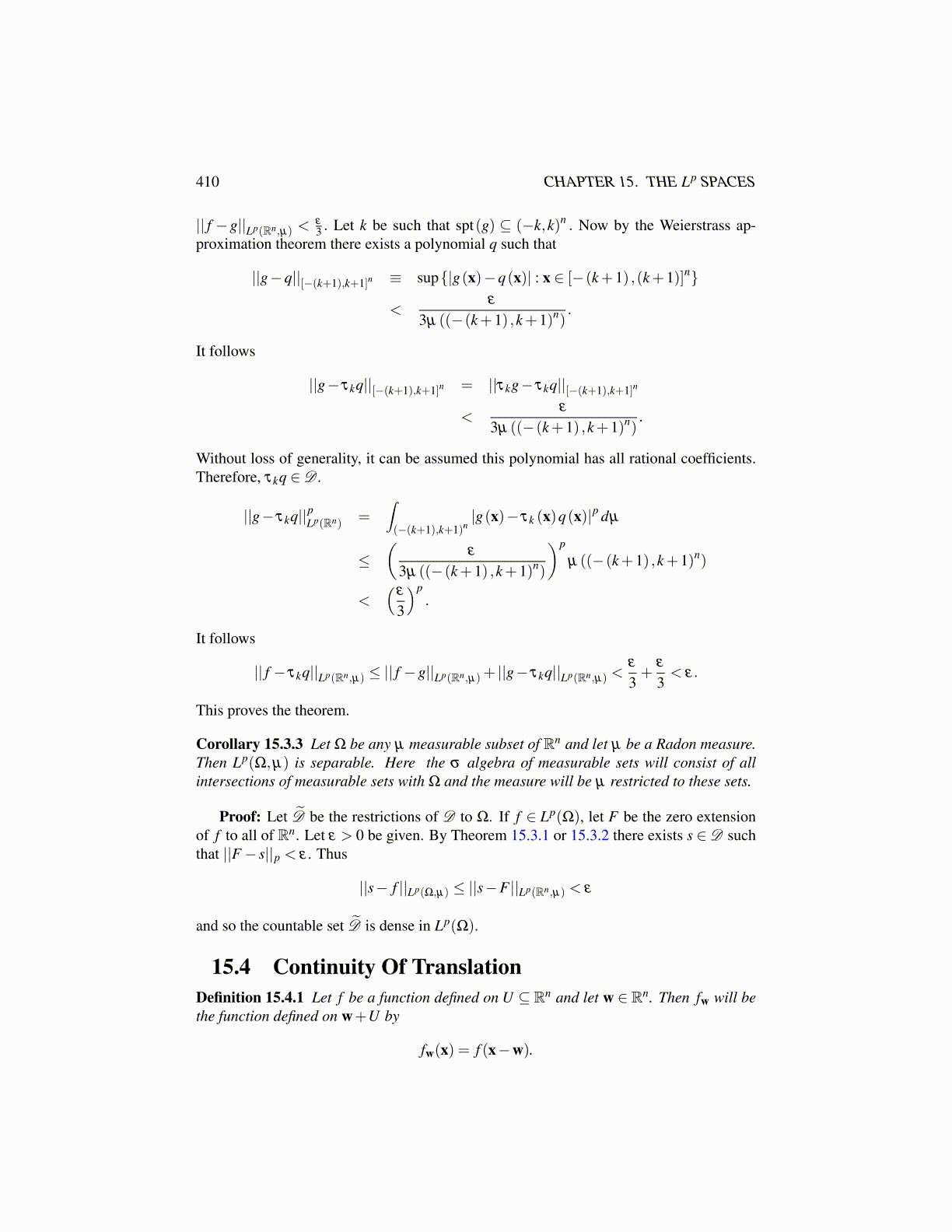
410 CHAPTER 15. THE Lp SPACES
|| f −g||Lp(Rn,µ) <ε
3 . Let k be such that spt(g) ⊆ (−k,k)n . Now by the Weierstrass ap-proximation theorem there exists a polynomial q such that
||g−q||[−(k+1),k+1]n ≡ sup{|g(x)−q(x)| : x ∈ [−(k+1) ,(k+1)]n}
<ε
3µ ((−(k+1) ,k+1)n).
It follows
||g− τkq||[−(k+1),k+1]n = ||τkg− τkq||[−(k+1),k+1]n
<ε
3µ ((−(k+1) ,k+1)n).
Without loss of generality, it can be assumed this polynomial has all rational coefficients.Therefore, τkq ∈D .
||g− τkq||pLp(Rn)=
∫(−(k+1),k+1)n
|g(x)− τk (x)q(x)|p dµ
≤(
ε
3µ ((−(k+1) ,k+1)n)
)p
µ ((−(k+1) ,k+1)n)
<(
ε
3
)p.
It follows
|| f − τkq||Lp(Rn,µ) ≤ || f −g||Lp(Rn,µ)+ ||g− τkq||Lp(Rn,µ) <ε
3+
ε
3< ε.
This proves the theorem.
Corollary 15.3.3 Let Ω be any µ measurable subset of Rn and let µ be a Radon measure.Then Lp(Ω,µ) is separable. Here the σ algebra of measurable sets will consist of allintersections of measurable sets with Ω and the measure will be µ restricted to these sets.
Proof: Let D̃ be the restrictions of D to Ω. If f ∈ Lp(Ω), let F be the zero extensionof f to all of Rn. Let ε > 0 be given. By Theorem 15.3.1 or 15.3.2 there exists s ∈D suchthat ||F− s||p < ε . Thus
||s− f ||Lp(Ω,µ) ≤ ||s−F ||Lp(Rn,µ) < ε
and so the countable set D̃ is dense in Lp(Ω).
15.4 Continuity Of TranslationDefinition 15.4.1 Let f be a function defined on U ⊆ Rn and let w ∈ Rn. Then fw will bethe function defined on w+U by
fw(x) = f (x−w).